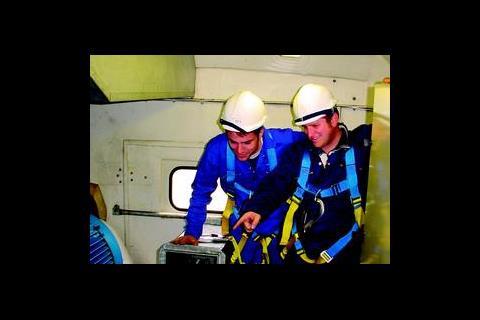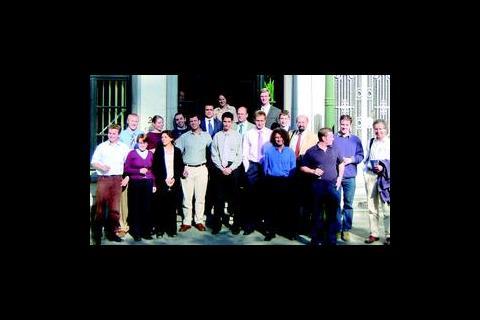In its annual review, LSBU says that the number of engineering students it is taking in is growing. This has a lot to do with the way the university is joining up with industry and professional bodies. A further pull for undergraduates is recently formed Faculty of Engineering, Science and the Built Environment. Further plans are afoot to expand existing links with colleges of further education to develop associated vocational skills that are urgently required by UK industry and a profession that is seen worldwide.
London South Bank University has been encouraged by the expanding numbers on its common engineering foundation year. The university aims to increase the efficiency of its programmes by developing an integrated engineering module with a common first-term semester. A foundation degree will feature as part of the offer, with opportunities for students to specialise in associated fields, for example energy engineering and climatic adaptive architecture.
The idea that universities can link with industry to mutual benefit is an increasingly important one. This is particularly true in 'new' industries such as renewable energies.
Dr Mike Duke and Dr Loey Salam, of the solar team at LSBU were the originators of the solar-powered race car MAD DOG 1. Built on a shoestring in 1997 for £20 000 they took on world challengers such as Honda who spent £ 4million, racing across the expanse of the Australian desert. As a result of this kind of research, Duke and Salam have created a South Bank University spin-off company, Solion . The company specialises in solar products and services and is exporting a high-tech Li-ion battery system as well as developing a unique solar lighting product for the parks of Dubai. A new race car has been developed with the German Bochum Fachhochschule that could lead to a new electric vehicle powered from a static charge station. With the help of a £55 000 DTI grant, Solion is to grace the university's Borough Road premises with a 10·8 kW solar roof installation. Such an outward manifestation illustrates that what happens in the classroom can have a dramatic impact on industry technology. The government's White Paper, Our energy future-creating a low carbon economy, published in 2003, sought to address the nation's energy needs in the face of climate change. The White Paper underlined this dearth of skilled professions and trades stating that: "Some 19 000 graduates and skilled people will be needed over the next 15 years just to replace retirements and to satisfy demands for environmental restoration."
Leading in renewables
Universities and other learning centers across the nation have taken up the government's challenge to enhance our research and development programmes and importantly to increase vocational training to augment the essential skills of those hands-on people who make all the bright design systems work.
Along with LSBU, the newly named London Metropolitan University and Kingston University have expanded their own specialist environmental and architectural departments with greater integration with the whole range of building physics and engineering technologies which make up building services.
The government's desired push into expanding renewable energy technologies has become the focus of Loughborough University's Centre for Renewable Energy Systems Technology (CREST) to ensure an increase of non-polluting electrical production via wind and solar systems.
Professor David Infield, director of CREST is of the view that: "The new renewable energy technologies pose genuine challenges to building services engineers including the task to integrate such technologies with existing systems and plant. With this in mind my university colleague, Denis Loveday, has commenced a specifically shaped masters degree for building services."
Professor Infield recognises that the newly expanded European Community has a rapidly growing renewable energy industry. With this in mind he has joined his institution with the University of Northumbria to be an integral part of the recently created European Masters degree in Renewable Energy, developed by the Brussels based European Renewable Energy Centre (EUREC).
This one year course is open to students seeking an additional degree, and to people with established expertise in commerce, industry and associated professions. The course has a European dimension with study and project-specific research at the French Ecoles des Mines de Paris in Nice and the Univiersidad de Zagargoza, Spain. It has other specialist teaching modules covering photovoltaics, wind, biomass, solar and hybrid systems at the universities in Lisbon, Athens, Kassel in Germany, as well as Northumbria and Loughborough in England.
The course not only gives students the ability to learn from pan-European sources but also to establish cross border links beyond Europe.
First semester students, American Jennifer Hunt and Nicola Wilkins from the English Midlands found themselves 'parachuted' into, respectively, Gambia and the Fiji Islands. They had to sort out designs for the electrification of a rural health centre, and to find ways to ensure that wind turbines and pv panels can withstand tropical storms.
When the first fifteen students picked up their European degrees in Brussels on the 29 September 2003 they all had unique stories that told of their own personal learning curves and how this compre


















